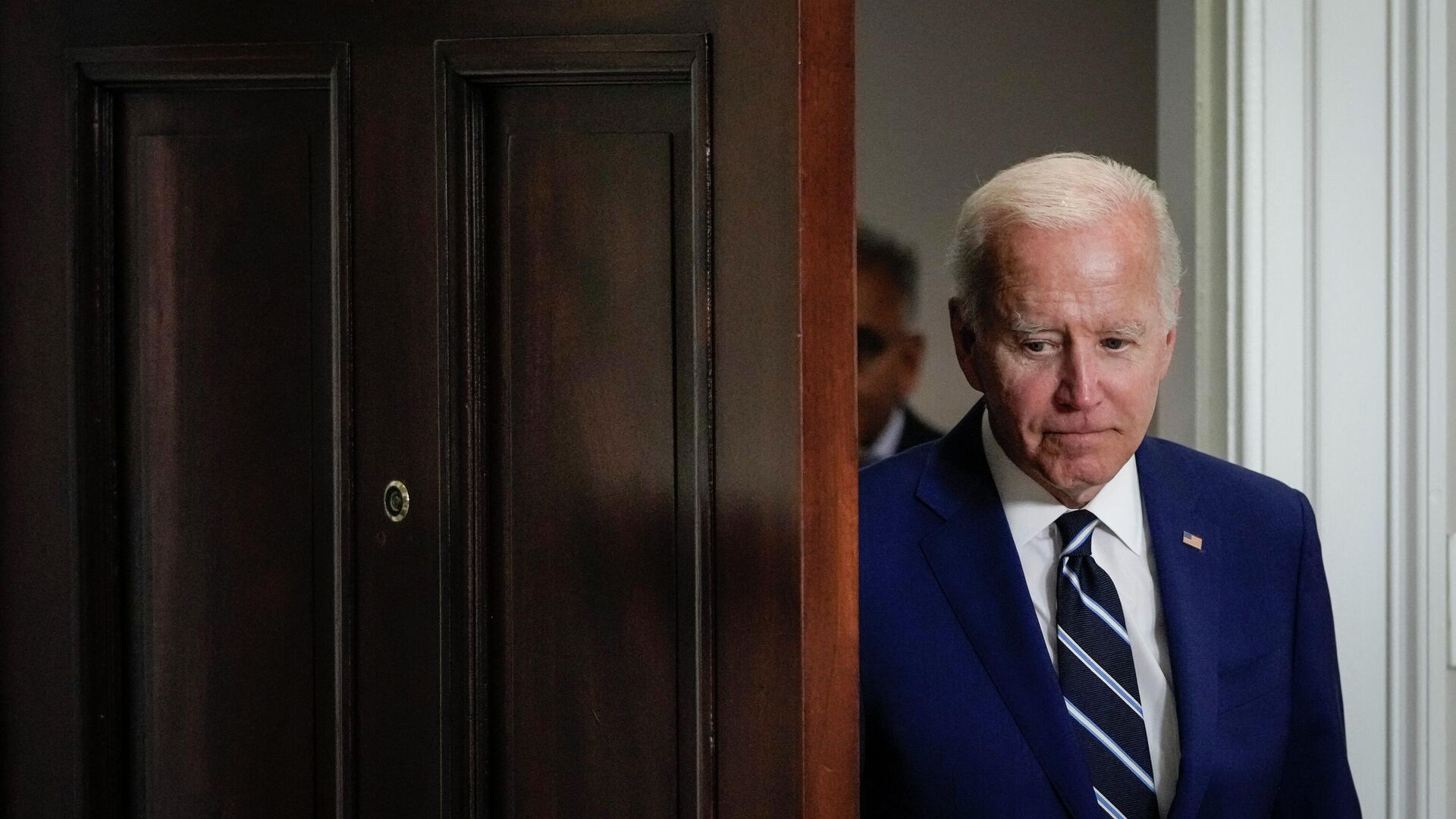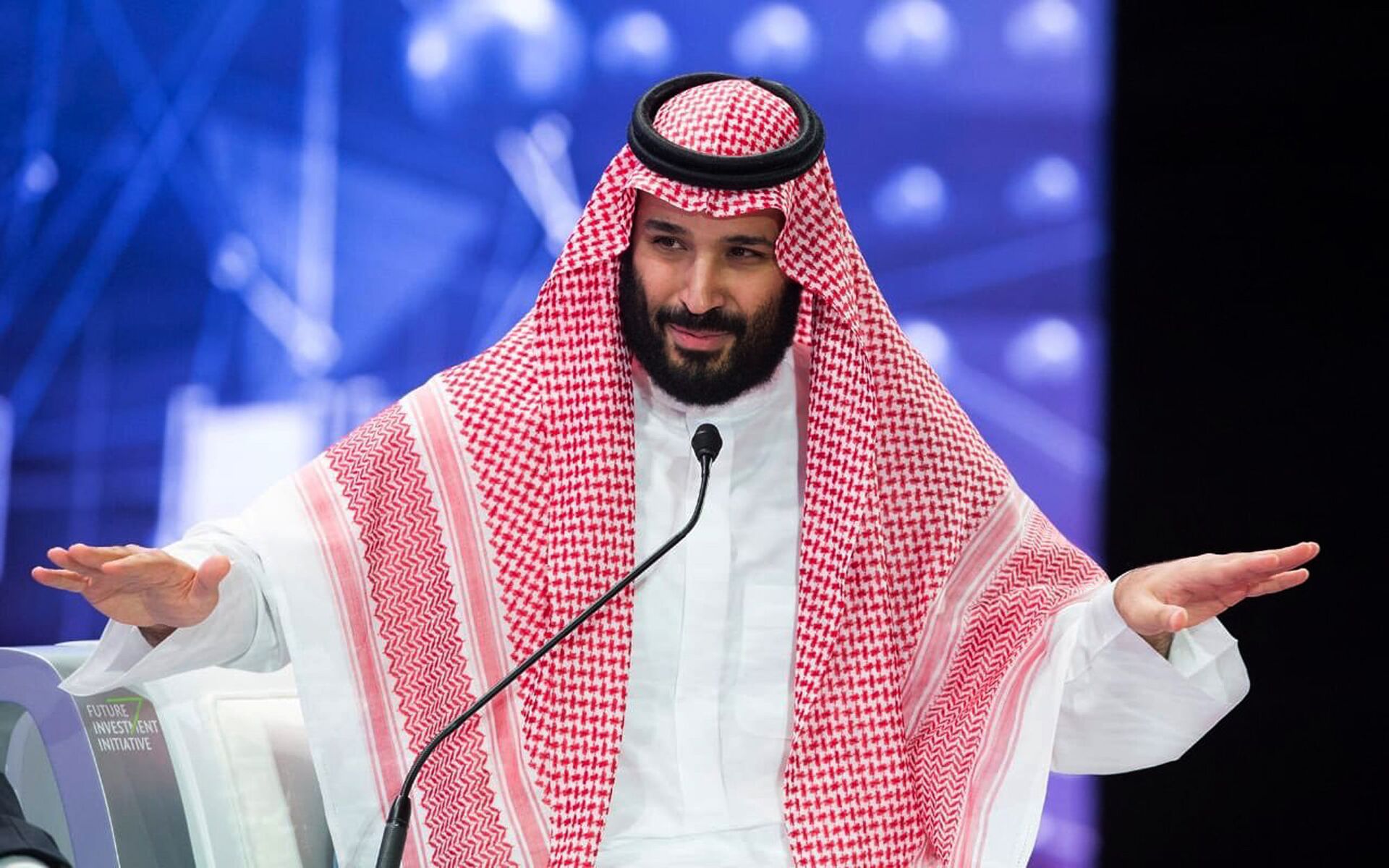https://sputnikglobe.com/20220708/biden-goes-to-saudi-arabia-to-advance-peace-but-local-analyst-is-skeptical-about-his-intentions-1097096385.html
Biden Goes to Saudi Arabia to Advance Peace But Local Analyst is Skeptical About His Intentions
Biden Goes to Saudi Arabia to Advance Peace But Local Analyst is Skeptical About His Intentions
Sputnik International
After being forced to delay his trip once, US President Joe Biden is finally expected in Saudi Arabia next weekend, where he will be meeting the country's top... 08.07.2022, Sputnik International
2022-07-08T12:41+0000
2022-07-08T12:41+0000
2023-01-15T17:26+0000
joe biden
us
middle east
saudi arabia
israel
https://cdn1.img.sputnikglobe.com/img/07e6/06/17/1096585518_0:211:3072:1939_1920x0_80_0_0_352ddcc1ffbfff0af09a28b0c15eba23.jpg
Next Friday, American President Joe Biden is set to travel to Saudi Arabia, where he will participate in a summit that would include a number of Gulf and Arab states and will reportedly try to advance a regional cooperation agreement.Many burning issues are set to be on the table.Sputnik spoke to Ahmed Al Ibrahim, a Riyadh-based political analyst, to discuss the upcoming visit.More OilAfter Russia launched its military operation in Ukraine on 24 February, it was slapped with a new round of Western sanctions. The most important of these affected its energy resources, pushing up oil and gas prices worldwide.In a bid to manage the acute energy crisis, the US and its allies tried to urge the oil producing countries to pump more crude. In March, however, Biden's calls to the Saudi and the Emirati leadership were declined. The visits of his allies, including Britain's then-Prime Minister Boris Johnson, didn't yield any tangible results.This time around, says Al Ibrahim, it might not work out either.The Iranian Threat?Ever since the Iranian Revolution of 1979, the Saudis have been concerned about neighboring Iran. They have suspected Tehran was working under the radar with the help of its regional allies to destabilize the Kingdom and oust its leadership.In addition, Riyadh has also been concerned about Tehran's nuclear program and has repeatedly stressed to the Americans that their shaping deal with the Islamic Republic was a red line that couldn't be crossed. In the past, Washington overlooked these fears. During his visit, Biden will probably need to give reassurances.But the bigger question is whether Riyadh will trust these reassurances. Washington has a proven record of backtracking on its promises. Such was the case in 2011 in Egypt, when the US demanded the resignation of then President Hoshi Mubarak following the eruption of the Arab Spring and despite earlier vows they would stand by his side. In Afghanistan, they withdrew their forces leaving the country exposed to the threat of the Taliban. And in the Gulf, they froze a multi-billion arms deals with Riyadh and Abu Dhabi, a move that has jeopardized their security.Ties with Israel and a Regional NATOSaudi Arabia doesn't recognize Israel. Even more so, in the past it sent some of its troops to assist Arab countries to combat the Jewish state. But the Abraham Accords of 2020 signed between Israel, the United Arab Emirates and Bahrain have started to thaw the ice in other Arab nations. Reports have suggested Saudi Arabia might eventually become one of them.The past couple of years have seen a shift in the way Israel was presented in the Saudi media. Major newspapers, including A-Sharq Al Awsat, interviewed Israeli ministers and lawmakers. Social media that's tightly controlled by the state started talking about the recognition of Israel and co-existence. Several Israeli reporters were allowed to enter the Kingdom.But Al Ibrahim is certain that the way to a proper normalization deal is still remote.A deal with Israel is currently not on the horizon, believes the analyst, because Saudi Arabia "wants to see concessions on the Palestinian front".Those include the protection of Muslims' holy sites in Jerusalem, the extension of rights to the Palestinians and the end of encroachment of their lands.Human RightsBefore he came to office in January 2021, Biden accused Saudi Arabia of "human rights violations". The finger of blame has constantly been pointed at their purported persecution of minorities, activists and the LGBT community. The Kingdom has also been slammed for not giving enough rights to its women. All those allegations Riyadh has repeatedly denied . But Al Ibrahim says his people look at the situation in a different light.
saudi arabia
israel
Sputnik International
feedback@sputniknews.com
+74956456601
MIA „Rossiya Segodnya“
2022
News
en_EN
Sputnik International
feedback@sputniknews.com
+74956456601
MIA „Rossiya Segodnya“
Sputnik International
feedback@sputniknews.com
+74956456601
MIA „Rossiya Segodnya“
joe biden, us, middle east, saudi arabia, israel
joe biden, us, middle east, saudi arabia, israel
Biden Goes to Saudi Arabia to Advance Peace But Local Analyst is Skeptical About His Intentions
12:41 GMT 08.07.2022 (Updated: 17:26 GMT 15.01.2023) After being forced to delay his trip once, US President Joe Biden is finally expected in Saudi Arabia next weekend, where he will be meeting the country's top officials, including King Salman and his son, Crown Prince Mohammed Bin Salman.
Next Friday, American President Joe Biden is set to travel to Saudi Arabia, where he will participate in a summit that would include a number of Gulf and Arab states and will reportedly try to advance a regional cooperation agreement.
Many burning issues are set to be on the table.
Sputnik spoke to Ahmed Al Ibrahim, a Riyadh-based political analyst, to discuss the upcoming visit.
After Russia launched its military operation in Ukraine on 24 February, it was slapped with a new round of Western sanctions. The most important of these affected its energy resources, pushing up oil and gas prices worldwide.
In a bid to manage the acute energy crisis, the US and its allies tried to urge the oil producing countries to pump more crude. In March, however, Biden's
calls to the Saudi and the Emirati leadership were declined. The visits of his allies, including Britain's then-Prime Minister
Boris Johnson, didn't yield any tangible results.This time around, says Al Ibrahim, it might not work out either.
"Of course, they will want us to pump more oil. And of course, we would like to stabilize the market. But we have reached our maximum capacity. Plus we are not a gas station anymore. We have our national interests," he argues.
Ever since the Iranian Revolution of 1979, the Saudis have been concerned about neighboring Iran. They have suspected Tehran was working under the radar with the help of its regional allies to destabilize the Kingdom and oust its leadership.
In addition, Riyadh has also been concerned about Tehran's nuclear program and has repeatedly stressed to the Americans that their shaping deal with the Islamic Republic was a red line that couldn't be crossed. In the past, Washington overlooked these fears. During his visit, Biden will probably need to give reassurances.
"Biden needs to think what commitments he can give to the Gulf and how he can guarantee the protection of the area from an Iranian threat. If he can give those, our relations will enhance," explains Al Ibrahim.
But the bigger question is whether Riyadh will trust these reassurances. Washington has a proven record of backtracking on its promises. Such was the case in 2011 in Egypt, when the US demanded the resignation of then President Hoshi Mubarak following the eruption of the Arab Spring and despite earlier vows they would stand by his side. In Afghanistan, they withdrew their forces leaving the country exposed to the threat of the Taliban. And in the Gulf, they
froze a multi-billion arms deals with Riyadh and Abu Dhabi, a move that has jeopardized their security.
"I would be careful taking any words from this administration. I do trust the American institutions, their intelligence and the defense establishments. But I am not putting my bets on the State Department and I am concerned about any commitments that this administration can give to the region," argues Al Ibrahim.
Ties with Israel and a Regional NATO
Saudi Arabia doesn't recognize Israel. Even more so, in the past it sent some of its troops to assist Arab countries to combat the Jewish state. But the Abraham Accords of 2020 signed between Israel, the United Arab Emirates and Bahrain have started to thaw the ice in other Arab nations. Reports have suggested
Saudi Arabia might eventually become one of them.The past couple of years have seen a shift in the way Israel was presented in the Saudi media. Major newspapers, including A-Sharq Al Awsat,
interviewed Israeli ministers and lawmakers. Social media that's tightly controlled by the state started talking about the recognition of Israel and co-existence. Several Israeli reporters were allowed to enter the Kingdom.
But Al Ibrahim is certain that the way to a proper normalization deal is still remote.
"Both nations are facing a lot of similar security challenges and same threats but I don't think a normalization deal will happen, simply because we won't give this trophy to the Biden administration after everything he has done and said about our leadership". "However, what can happen is a regional NATO that will involve all regional players and even such states as India and Azerbaijan, who would want to take part to stabilize the region".
A deal with Israel is currently not on the horizon, believes the analyst, because Saudi Arabia "wants to see concessions on the Palestinian front".
Those include the protection of Muslims' holy sites in Jerusalem, the extension of rights to the Palestinians and the end of encroachment of their lands.
"Saudi Arabia is ready to give an arm and a leg but for the normalization to happen, Israel needs to make concessions from its side. Maybe in the future it will happen. Now, it seems, it is not the right time," argues Al Ibrahim.
Before he came to office in January 2021, Biden accused Saudi Arabia of "human rights violations". The finger of blame has constantly been pointed at their purported persecution of minorities, activists and the LGBT community. The Kingdom has also been slammed for not giving enough rights to its women. All those allegations Riyadh has repeatedly denied . But Al Ibrahim says his people look at the situation in a different light.
"They cannot force us to accept the LGBT community. It is illegal here and against our religion. The Saudi people will not accept it. We don't call on them to put abayas [traditional dress for women in Muslim countries - ed.] on their women. And we expect they don't force their traditions on us either... Saudi Arabia needs to keep on working with the US. We have many investments and defense agreements. We have trade going on. But their approach needs to change. Their words are not enough. We need to see actions," sums up Al Ibrahim.



